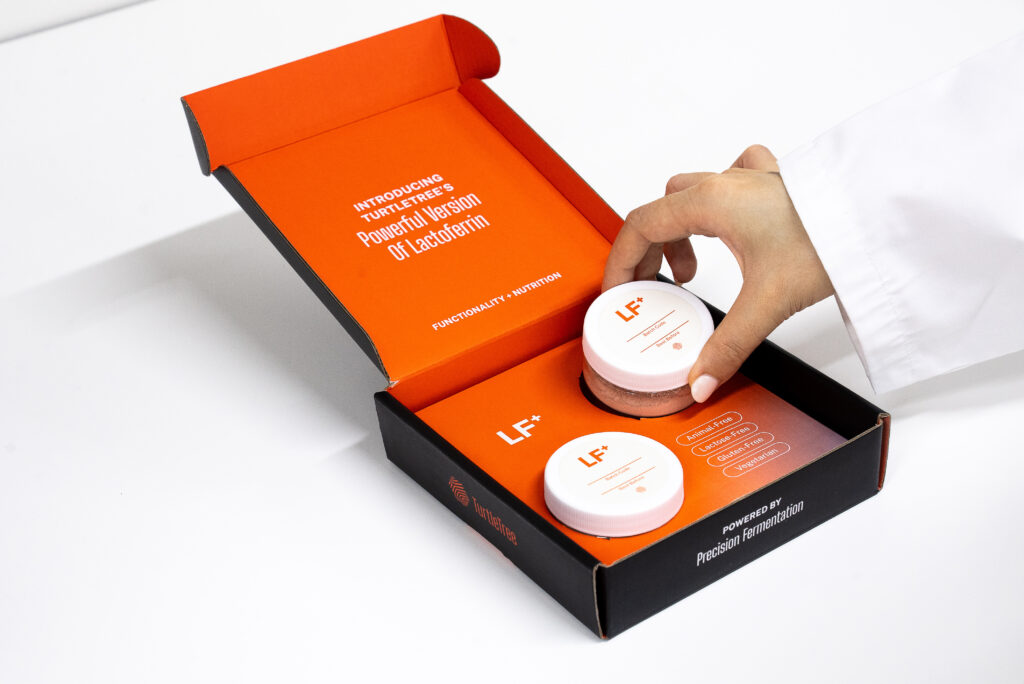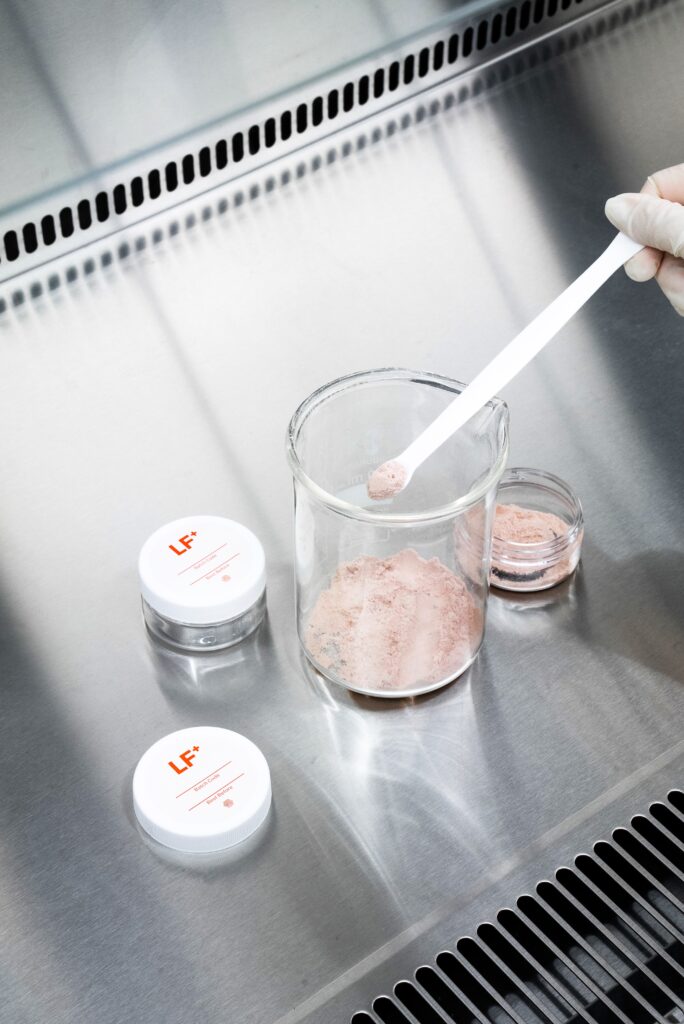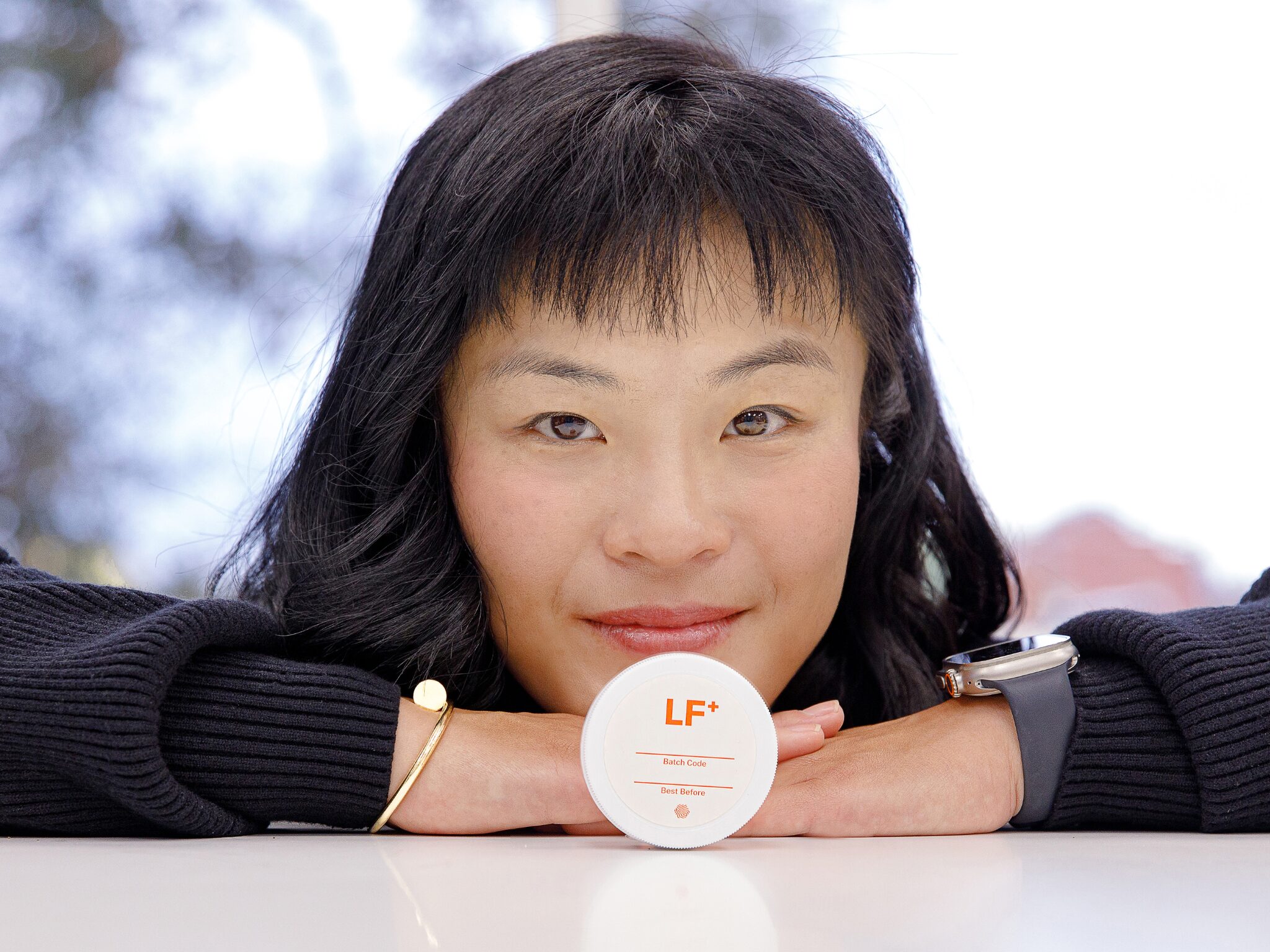TurtleTree Achieves First Vegan Certification for Precision-Fermented Dairy Proteins
5 Mins Read
Singaporean startup TurtleTree has become the first precision fermentation dairy company to earn a vegan certification, with its animal-free lactoferrin protein LF+ now sporting the Certified Vegan logo by Vegan Action.
Called LF+, TurtleTree says its lactoferrin is the first precision-fermented dairy protein to be accredited as a vegan product globally, months after it earned self-affirmed GRAS status in the US.
This also marks the first time Vegan Action – the most recognised vegan certification body in the US, with over 15,000 accredited products in its catalogue – has provided its stamp to a novel protein in the 24 years since its launch. The accreditation confirms that TurtleTree’s lactoferrin protein is indeed free from animal products, byproducts and testing.
“As conscious consumers increasingly prioritise ethical choices, we aim to provide food and beverage brands with the unwavering confidence that our products align seamlessly with those evolving values,” said TurtleTree co-founder and CEO Fengru Lin.
Why vegan certification became important for TurtleTree

TurtleTree said its vegan certification has “solidified its unwavering commitment” to animal welfare and meeting evolving consumer demands. While most precision fermentation products don’t involve any animals, their bioidentical nature and the genetic codes required in production can make interpretations complex, especially when adhering to standards originally designed for plant-based products, the startup explained.
There is certainly a case for clarity here. A 2022 consumer acceptance study by German precision fermentation company Formo, Mercy for Animals, and the University of Bath revealed that respondents wondered how best to categorise animal-free dairy, and whether they’re vegan, plant-based and free from animal involvement at all, or if they should be considered ‘real’ dairy?
“Preoccupation with broken rules of categorisation was a factor for many of the participants, and many called for regulatory bodies, labelling standards, and transparency in the production process to deliver clarity on these questions,” the authors wrote.
TurtleTree called vegan certification a “hot-button issue”, explaining that regulatory approval demands extensive safety testing, and some companies choose quicker, cheaper animal studies and preclude products from being accredited as vegan. The startup aims to set a precedent to help create a standardised definition of veganism in the context of precision fermentation.
Krissi Vandenberg, director of Vegan Action, said this sets a “clear benchmark” for the rest of the industry: “This certification demonstrates the tangible steps companies can take to validate and communicate their values to customers, underlining a collective commitment to ethical standards.”
Irina Gerry, chief marketing officer of US-Australian precision fermentation company Change Foods and vice chair of the board of directors at industry association Precision Fermentation Alliance, told Green Queen that while vegan certification is a great way to demonstrate a company’s product satisfies strict ethical standards, all companies in the sector might not want to go down this path.
Whether a food is vegan-friendly is separate from whether it should be labelled as vegan because it transcends just ethical factors. Until now, seeing a vegan product was a sure sign that it was free from dairy – but with precision fermentation, the lines are more blurry. While TurtleTree’s dairy protein is lactose-free (which some consumers have an intolerance to), for folks allergic to dairy proteins themselves, a vegan label may cause added confusion, as dairy allergies can have serious consequences.
“Given that to date, consumers tend to understand ‘vegan’ as ‘plant-based’, and therefore not expect to encounter a milk allergen, labelling milk protein made via fermentation as vegan could lead to confusion around allergenicity,” explains Gerry. So should all startups aim for vegan certification? “It depends on the company, the specific molecule, and the target consumer.”
Disrupting the coveted lactoferrin market

The startup argues that being the only vegan lactoferrin on the market, LF+ will challenge the dominance of bovine lactoferrin. One of the main whey proteins found in human milk and bovine colostrum produced just after birth, it is also known as ‘first milk’. It’s a highly sought-after protein, as it takes at least 10,000 litres of milk to produce just 1kg of purified lactoferrin and currently retails for $750-$1,500 per kg.
Due to its limited supply, lactoferrin is only used in a few essential foods and beverages like infant formula and supplements. But it is said to have many functional benefits, including antiviral, antibacterial, anti-carcinogenic, immunity-boosting, gut-strengthening and iron regulation properties. The latter is a major USP, with the protein earning its ‘pink gold’ moniker due to the colour derived from its rich iron content.
One estimate predicts a 15.8% annual growth for the lactoferrin market, growing from $772.3M in 2023 to $3.3B in 2033. TurtleTree has claimed that its animal-free version will be more affordable and that it has managed to scale up production of the protein, which allows the company to alleviate “the global shortage of lactoferrin”, and attract new consumers previously unable to access the protein due to cost and supply barriers.
The company has previously said its clients are interested in purchasing $500M worth of LF+ over the next five years. It claims its protein will be more affordable and that it has managed to scale up production to alleviate “the global shortage of lactoferrin”. This will help attract new consumers previously unable to access lactoferrin due to cost and supply barriers.
Apart from infant formula, multivitamins and supplements, LF+ could be used in protein powders, functional beverages, meal replacements for the elderly, and animal-free dairy products. Vegan Action’s Certified Vegan logo now appears on the product’s packaging, validating its animal-free claims through a third party.
“Producing milk proteins without farming animals is a big part of the value proposition of precision fermentation,” says Gerry, but she reiterated that whether every company would want to obtain such accreditation is a more nuanced matter. “I always look at it from the end consumer in mind. If a company is targeting a vegan audience, then obtaining vegan certification would be highly beneficial.”
“However, it may not be needed if a company is targeting a broader set of consumers, especially if these consumers have varied reasons for seeking animal-free products. For some, it could be animal ethics, for others, it could be dairy allergen avoidance… climate or targeted nutrition needs.”




